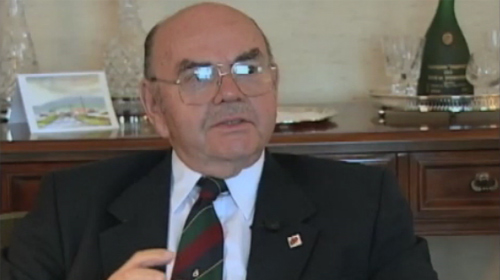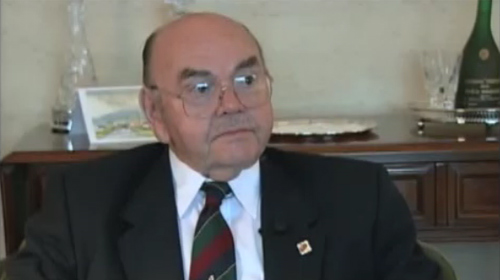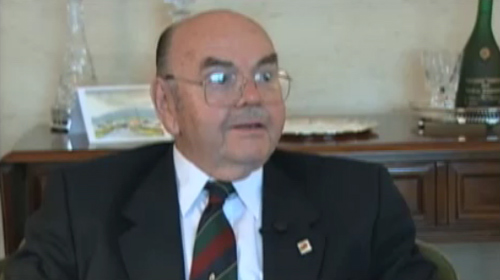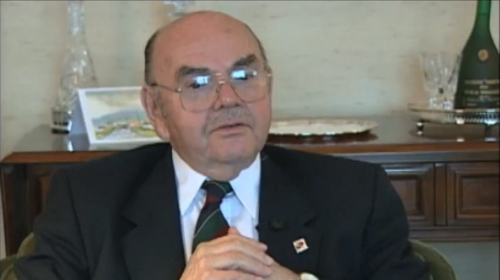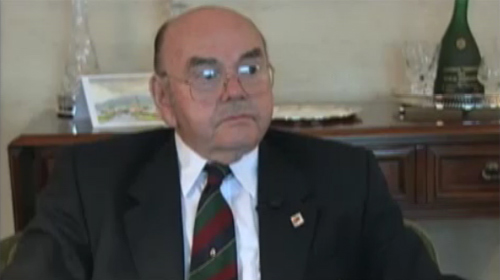Close Relationships
Heroes Remember
Close Relationships
Transcript
Description
As he annually takes part in Remembrance Day services each November 11th, Mr. Thompson's thoughts take him back to those days of the 1940's.
Donald Thompson
Mr. Thompson was born in West Saint John, New Brunswick on August 19, 1922. He was the middle child in a family of three boys. His father worked as a railway engineer and fireman with the Canadian Pacific Railway. Mr. Thompson was first introduced to military training at an early age becoming involved with the militia when he was roughly 12 years old. He received his Royal Canadian Rifles certificate as a qualified infantry machine gun sergeant in 1939 at the age of 17. He was chosen to go overseas with a company from the Saint John Fusiliers as reinforcements. He travelled overseas on a pleasure boat that was in the midst of being converted to a troop ship and arrived in Liverpool, England. From Liverpool he travelled by train to Aldershot and then on to Crookham Crossroads. There he joined the Cameron Highlanders and trained to support an infantry battalion. In 1943 - 44, while only 21 years old, he achieved the rank of captain and was in Inverary training for combined ops amphibious landings. They trained, in preparation for D-Day, in a camp that was surrounded by barb wire and no one was allowed leave. On June 6th 1944 he landed on Juno Beach as part of the second wave behind the Winnipeg Rifles. On the third day of fighting after landing on Juno Beach he was hit by shrapnel and subsequently sent back to England on a hospital ship. Although he tried to return to action his wounds proved to be too much and he was sent back to England a second time and then eventually back to Canada. After the war Mr. Thompson worked with the Canadian Legion (later to be the Royal Canadian Legion) in Saint John. He moved up the ranks with the Legion and ended up in Ottawa as the Dominion Secretary. In 1970 he was appointed Chairman of the War Veterans Allowance Board and held this position until he retired in 1987. Mr. Thompson was also named Honorary Lieutenant Colonel of the Cameron Highlanders.
Meta Data
- Medium:
- Video
- Owner:
- Veterans Affairs Canada
- Duration:
- 03:01
- Person Interviewed:
- Donald Thompson
- War, Conflict or Mission:
- Second World War
- Battle/Campaign:
- D-Day
- Occupation:
- Captain, Platoon Commander
Related Videos
- Date modified:



